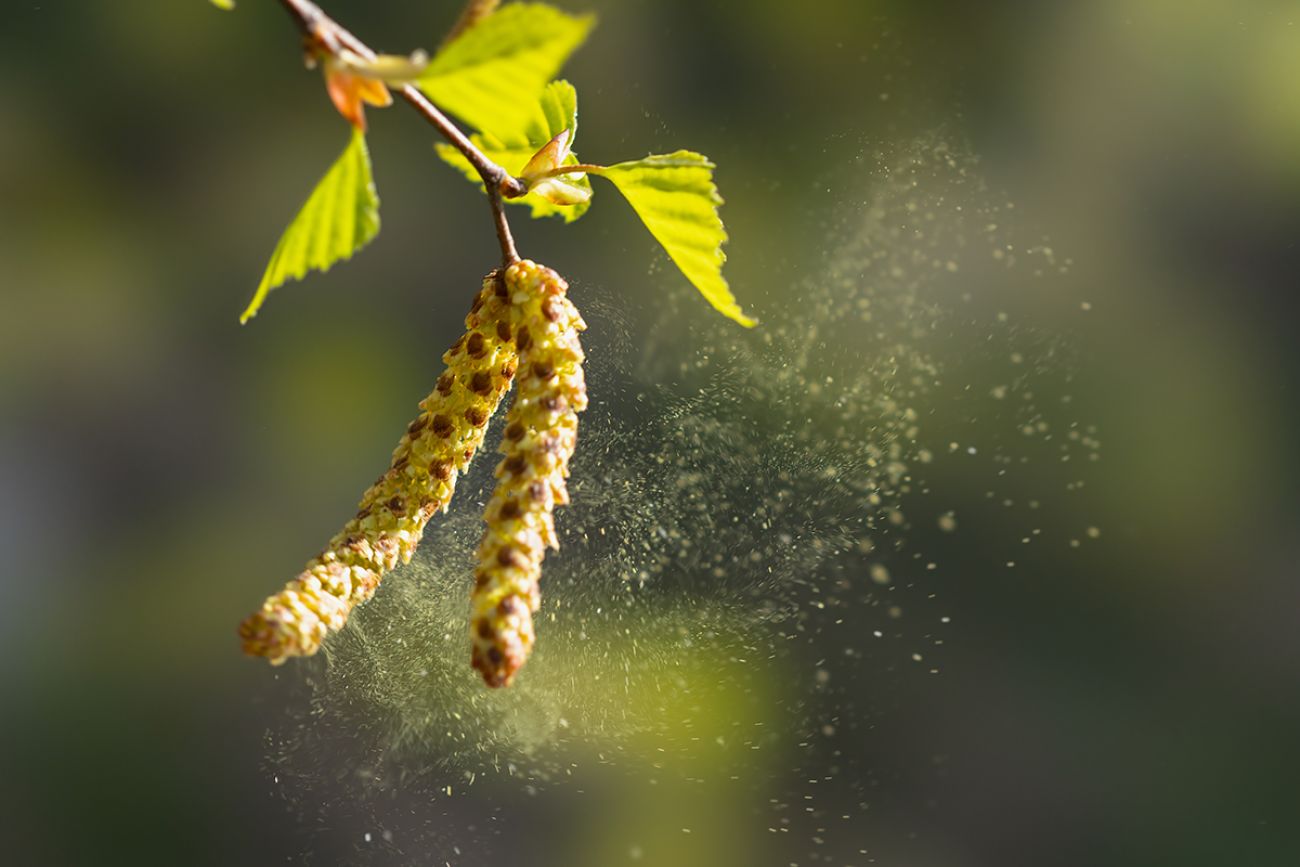Yes, allergy season is starting earlier in Michigan

- Hay fever, or allergic rhinitis, affects up to 60 million people in the US each year, causing symptoms like sneezing and itchy eyes
- Allergy season is becoming longer and with more intense pollen release, leading to worsened symptoms
- Early use of allergy medications can help manage symptoms and make the allergy season more manageable
As the weather warms up and the seasons shift, people tend to enjoy outdoor activities they couldn’t partake in during the colder months.
However, one thing most people don't look forward to is seasonal allergies.
Not that they have a choice. In some parts of the US, allergy sufferers may find themselves feeling even more miserable than usual this year, according to the annual allergy forecast from Accuweather.
"Even if we have an 'average' season, we could easily see a few-day period of some extreme pollen when things dry out and there is a week of warm temperatures, especially in the Northeast," said AccuWeather senior meteorologist Alan Reppert.
According to the Centers for Disease Control and Prevention, up to 60 million people in the US experience allergic rhinitis, better known as hay fever, annually.
It’s the most prevalent seasonal allergy and is caused by exposure to pollen from trees, grasses and weeds. The Asthma and Allergy Foundation of America defines an allergy as the immune system's reaction to a substance that the body mistakenly sees as harmful.
Related: Allergies may be getting worse in Michigan. It’s not just you
Allergic reactions such as sneezing, coughing, itchy eyes, rashes, a runny nose or a sore throat are common. In more severe cases, they can lead to breathing difficulties or trigger asthma attacks.
Milder springs and longer falls allow weeds to grow longer and release more pollen. As a result, the extended allergy season has led to more severe spring allergies for some people.
“We've been seeing a trend over the last 10 years where the seasons tend to start a little bit earlier,” said Dr. Devang Doshi, pulmonologist and allergist for Corewell Health. “This year in particular… this is probably week three of pollen season already in Michigan.”
“Every year we're expecting seasons to start earlier and last a little bit longer with higher pollen counts. And so the thought that pollen season tends to come and be worse every year a little bit is very true,” he said.
Increased pollen exposure can even prove deadly to the most vulnerable populations, according to a recent study from the University of Michigan.
“As pollen levels continue to rise and seasons get longer, more people may face serious health risks, especially older adults with existing breathing problems,” said study author Peter Larson, a research investigator in the Department of Epidemiology at the School of Public Health. The study linked the increased risk to high levels of certain kinds of pollen, such as from deciduous trees and ragweed.
Try visiting pollen.com for information on pollen levels.
What allergy sufferers can do
Allergy medications like antihistamines and nasal corticosteroids should be taken 2-4 weeks before the start of allergy season as a preventative measure to help your body build a “buffer” against common allergens, according to the Allergy and Asthma Network.
“It's much easier to have medications started earlier and be there, so that if and when you are exposed to your particular allergens, you've got medicines already there to combat some of the aftermath that's created by the pollen,” Doshi said.
For individuals with more severe allergies, immunotherapy could also help modify symptoms for the long term.
“The key part of dealing with seasonal allergies is really making sure that our symptoms are manageable so we're able to continue functioning, going to work and taking care of our children,” he said.
See what new members are saying about why they donated to Bridge Michigan:
- “In order for this information to be accurate and unbiased it must be underwritten by its readers, not by special interests.” - Larry S.
- “Not many other media sources report on the topics Bridge does.” - Susan B.
- “Your journalism is outstanding and rare these days.” - Mark S.
If you want to ensure the future of nonpartisan, nonprofit Michigan journalism, please become a member today. You, too, will be asked why you donated and maybe we'll feature your quote next time!








